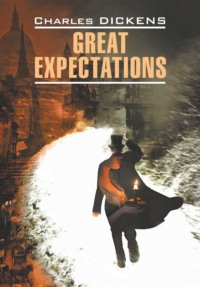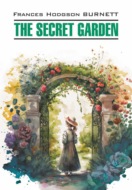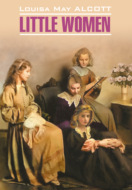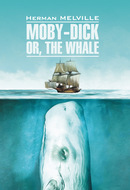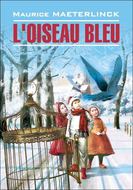Kitabı oku: «Great Expectations / Большие надежды. Книга для чтения на английском языке», sayfa 8
Chapter XII
My mind grew very uneasy on the subject of the pale young gentleman. The more I thought of the fight, and recalled the pale young gentleman on his back in various stages of puffy and incrimsoned countenance, the more certain it appeared that something would be done to me. I felt that the pale young gentleman’s blood was on my head, and that the Law would avenge it. Without having any definite idea of the penalties I had incurred, it was clear to me that village boys could not go stalking about the country, ravaging the houses of gentlefolks and pitching into the studious youth of England, without laying themselves open to severe punishment. For some days, I even kept close at home, and looked out at the kitchen door with the greatest caution and trepidation before going on an errand, lest the officers of the County Jail should pounce upon me. The pale young gentleman’s nose had stained my trousers, and I tried to wash out that evidence of my guilt in the dead of night. I had cut my knuckles against the pale young gentleman’s teeth, and I twisted my imagination into a thousand tangles, as I devised incredible ways of accounting for that damnatory circumstance when I should be haled before the Judges.
When the day came round for my return to the scene of the deed of violence, my terrors reached their height. Whether myrmidons17 of Justice, specially sent down from London, would be lying in ambush behind the gate; – whether Miss Havisham, preferring to take personal vengeance for an outrage done to her house, might rise in those grave-clothes of hers, draw a pistol, and shoot me dead: – whether suborned boys – a numerous band of mercenaries – might be engaged to fall upon me in the brewery, and cuff me until I was no more; – it was high testimony to my confidence in the spirit of the pale young gentleman, that I never imagined him accessory to these retaliations; they always came into my mind as the acts of injudicious relatives of his, goaded on by the state of his visage and an indignant sympathy with the family features.
However, go to Miss Havisham’s I must, and go I did. And behold! nothing came of the late struggle. It was not alluded to in any way, and no pale young gentleman was to be discovered on the premises. I found the same gate open, and I explored the garden, and even looked in at the windows of the detached house; but my view was suddenly stopped by the closed shutters within, and all was lifeless. Only in the corner where the combat had taken place could I detect any evidence of the young gentleman’s existence. There were traces of his gore in that spot, and I covered them with garden-mould from the eye of man.
On the broad landing between Miss Havisham’s own room and that other room in which the long table was laid out, I saw a garden-chair, – a light chair on wheels, that you pushed from behind. It had been placed there since my last visit, and I entered, that same day, on a regular occupation of pushing Miss Havisham in this chair (when she was tired of walking with her hand upon my shoulder) round her own room, and across the landing, and round the other room. Over and over and over again, we would make these journeys, and sometimes they would last as long as three hours at a stretch. I insensibly fall into a general mention of these journeys as numerous, because it was at once settled that I should return every alternate day at noon for these purposes, and because I am now going to sum up a period of at least eight or ten months.
As we began to be more used to one another, Miss Havisham talked more to me, and asked me such questions as what had I learnt and what was I going to be? I told her I was going to be apprenticed to Joe, I believed; and I enlarged upon my knowing nothing and wanting to know everything, in the hope that she might offer some help towards that desirable end. But she did not; on the contrary, she seemed to prefer my being ignorant. Neither did she ever give me any money, – or anything but my daily dinner, – nor ever stipulate that I should be paid for my services.
Estella was always about, and always let me in and out, but never told me I might kiss her again. Sometimes, she would coldly tolerate me; sometimes, she would condescend to me; sometimes, she would be quite familiar with me; sometimes, she would tell me energetically that she hated me. Miss Havisham would often ask me in a whisper, or when we were alone, “Does she grow prettier and prettier, Pip?” And when I said yes (for indeed she did), would seem to enjoy it greedily. Also, when we played at cards Miss Havisham would look on, with a miserly relish of Estella’s moods, whatever they were. And sometimes, when her moods were so many and so contradictory of one another that I was puzzled what to say or do, Miss Havisham would embrace her with lavish fondness, murmuring something in her ear that sounded like “Break their hearts my pride and hope, break their hearts and have no mercy!”
There was a song Joe used to hum fragments of at the forge, of which the burden was Old Clem. This was not a very ceremonious way of rendering homage to a patron saint, but I believe Old Clem stood in that relation towards smiths. It was a song that imitated the measure of beating upon iron, and was a mere lyrical excuse for the introduction of Old Clem’s respected name. Thus, you were to hammer boys round – Old Clem! With a thump and a sound – Old Clem! Beat it out, beat it out – Old Clem! With a clink for the stout – Old Clem! Blow the fire, blow the fire – Old Clem! Roaring dryer, soaring higher – Old Clem! One day soon after the appearance of the chair, Miss Havisham suddenly saying to me, with the impatient movement of her fingers, “There, there, there! Sing!” I was surprised into crooning this ditty as I pushed her over the floor. It happened so to catch her fancy that she took it up in a low brooding voice as if she were singing in her sleep. After that, it became customary with us to have it as we moved about, and Estella would often join in; though the whole strain was so subdued, even when there were three of us, that it made less noise in the grim old house than the lightest breath of wind.
What could I become with these surroundings? How could my character fail to be influenced by them? Is it to be wondered at if my thoughts were dazed, as my eyes were, when I came out into the natural light from the misty yellow rooms?
Perhaps I might have told Joe about the pale young gentleman, if I had not previously been betrayed into those enormous inventions to which I had confessed. Under the circumstances, I felt that Joe could hardly fail to discern in the pale young gentleman, an appropriate passenger to be put into the black velvet coach; therefore, I said nothing of him. Besides, that shrinking from having Miss Havisham and Estella discussed, which had come upon me in the beginning, grew much more potent as time went on. I reposed complete confidence in no one but Biddy; but I told poor Biddy everything. Why it came natural to me to do so, and why Biddy had a deep concern in everything I told her, I did not know then, though I think I know now.
Meanwhile, councils went on in the kitchen at home, fraught with almost insupportable aggravation to my exasperated spirit. That ass, Pumblechook, used often to come over of a night for the purpose of discussing my prospects with my sister; and I really do believe (to this hour with less penitence than I ought to feel), that if these hands could have taken a linchpin out of his chaise-cart, they would have done it. The miserable man was a man of that confined stolidity of mind, that he could not discuss my prospects without having me before him, – as it were, to operate upon, – and he would drag me up from my stool (usually by the collar) where I was quiet in a corner, and, putting me before the fire as if I were going to be cooked, would begin by saying, “Now, Mum, here is this boy! Here is this boy which you brought up by hand. Hold up your head, boy, and be forever grateful unto them which so did do. Now, Mum, with respections to this boy!” And then he would rumple my hair the wrong way, – which from my earliest remembrance, as already hinted, I have in my soul denied the right of any fellow-creature to do, – and would hold me before him by the sleeve, – a spectacle of imbecility only to be equalled by himself.
Then, he and my sister would pair off in such nonsensical speculations about Miss Havisham, and about what she would do with me and for me, that I used to want – quite painfully – to burst into spiteful tears, fly at Pumblechook, and pummel him all over. In these dialogues, my sister spoke to me as if she were morally wrenching one of my teeth out at every reference; while Pumblechook himself, self-constituted my patron, would sit supervising me with a depreciatory eye, like the architect of my fortunes who thought himself engaged on a very unremunerative job.
In these discussions, Joe bore no part. But he was often talked at, while they were in progress, by reason of Mrs. Joe’s perceiving that he was not favorable to my being taken from the forge. I was fully old enough now to be apprenticed to Joe; and when Joe sat with the poker on his knees thoughtfully raking out the ashes between the lower bars, my sister would so distinctly construe that innocent action into opposition on his part, that she would dive at him, take the poker out of his hands, shake him, and put it away. There was a most irritating end to every one of these debates. All in a moment, with nothing to lead up to it, my sister would stop herself in a yawn, and catching sight of me as it were incidentally, would swoop upon me with, “Come! there’s enough of you! You get along to bed; you’ve given trouble enough for one night, I hope!” As if I had besought them as a favor to bother my life out.
We went on in this way for a long time, and it seemed likely that we should continue to go on in this way for a long time, when one day Miss Havisham stopped short as she and I were walking, she leaning on my shoulder; and said with some displeasure, –
“You are growing tall, Pip!”
I thought it best to hint, through the medium of a meditative look, that this might be occasioned by circumstances over which I had no control.
She said no more at the time; but she presently stopped and looked at me again; and presently again; and after that, looked frowning and moody. On the next day of my attendance, when our usual exercise was over, and I had landed her at her dressing-table, she stayed me with a movement of her impatient fingers: –
“Tell me the name again of that blacksmith of yours.”
“Joe Gargery, ma’am.”
“Meaning the master you were to be apprenticed to?”
“Yes, Miss Havisham.”
“You had better be apprenticed at once. Would Gargery come here with you, and bring your indentures, do you think?”
I signified that I had no doubt he would take it as an honor to be asked.
“Then let him come.”
“At any particular time, Miss Havisham?”
“There, there! I know nothing about times. Let him come soon, and come along with you.”
Chapter XIII
It was a trial to my feelings, on the next day but one, to see Joe arraying himself in his Sunday clothes to accompany me to Miss Havisham’s. However, as he thought his court-suit necessary to the occasion, it was not for me tell him that he looked far better in his working-dress; the rather, because I knew he made himself so dreadfully uncomfortable, entirely on my account, and that it was for me he pulled up his shirt-collar so very high behind, that it made the hair on the crown of his head stand up like a tuft of feathers.
At breakfast-time my sister declared her intention of going to town with us, and being left at Uncle Pumblechook’s and called for “when we had done with our fine ladies” – a way of putting the case, from which Joe appeared inclined to augur the worst. The forge was shut up for the day, and Joe inscribed in chalk upon the door (as it was his custom to do on the very rare occasions when he was not at work) the monosyllable HOUT, accompanied by a sketch of an arrow supposed to be flying in the direction he had taken.
We walked to town, my sister leading the way in a very large beaver bonnet, and carrying a basket like the Great Seal of England in plaited Straw, a pair of pattens, a spare shawl, and an umbrella, though it was a fine bright day. I am not quite clear whether these articles were carried penitentially or ostentatiously; but I rather think they were displayed as articles of property, – much as Cleopatra or any other sovereign lady on the Rampage might exhibit her wealth in a pageant or procession.
When we came to Pumblechook’s, my sister bounced in and left us. As it was almost noon, Joe and I held straight on to Miss Havisham’s house. Estella opened the gate as usual, and, the moment she appeared, Joe took his hat off and stood weighing it by the brim in both his hands; as if he had some urgent reason in his mind for being particular to half a quarter of an ounce.
Estella took no notice of either of us, but led us the way that I knew so well. I followed next to her, and Joe came last. When I looked back at Joe in the long passage, he was still weighing his hat with the greatest care, and was coming after us in long strides on the tips of his toes.
Estella told me we were both to go in, so I took Joe by the coat-cuff and conducted him into Miss Havisham’s presence. She was seated at her dressing-table, and looked round at us immediately.
“Oh!” said she to Joe. “You are the husband of the sister of this boy?”
I could hardly have imagined dear old Joe looking so unlike himself or so like some extraordinary bird; standing as he did speechless, with his tuft of feathers ruffled, and his mouth open as if he wanted a worm.
“You are the husband,” repeated Miss Havisham, “of the sister of this boy?”
It was very aggravating; but, throughout the interview, Joe persisted in addressing me instead of Miss Havisham.
“Which I meantersay, Pip,” Joe now observed in a manner that was at once expressive of forcible argumentation, strict confidence, and great politeness, “as I hup and married your sister, and I were at the time what you might call (if you was anyways inclined) a single man.”
“Well!” said Miss Havisham. “And you have reared the boy, with the intention of taking him for your apprentice; is that so, Mr. Gargery?”
“You know, Pip,” replied Joe, “as you and me were ever friends, and it were looked for’ard to betwixt us, as being calc’lated to lead to larks. Not but what, Pip, if you had ever made objections to the business, – such as its being open to black and sut, or suchlike, – not but what they would have been attended to, don’t you see?”
“Has the boy,” said Miss Havisham, “ever made any objection? Does he like the trade?”
“Which it is well beknown to yourself, Pip,” returned Joe, strengthening his former mixture of argumentation, confidence, and politeness, “that it were the wish of your own hart.” (I saw the idea suddenly break upon him that he would adapt his epitaph to the occasion, before he went on to say) “And there weren’t no objection on your part, and Pip it were the great wish of your hart!”
It was quite in vain for me to endeavor to make him sensible that he ought to speak to Miss Havisham. The more I made faces and gestures to him to do it, the more confidential, argumentative, and polite, he persisted in being to me.
“Have you brought his indentures with you?” asked Miss Havisham.
“Well, Pip, you know,” replied Joe, as if that were a little unreasonable, “you yourself see me put ‘em in my “at, and therefore you know as they are here.” With which he took them out, and gave them, not to Miss Havisham, but to me. I am afraid I was ashamed of the dear good fellow, – I know – I was ashamed of him, – when I saw that Estella stood at the back of Miss Havisham’s chair, and that her eyes laughed mischievously. I took the indentures out of his hand and gave them to Miss Havisham.
“You expected,” said Miss Havisham, as she looked them over, “no premium with the boy?”
“Joe!” I remonstrated, for he made no reply at all. “Why don’t you answer – ”
“Pip,” returned Joe, cutting me short as if he were hurt, “which I meantersay that were not a question requiring a answer betwixt yourself and me, and which you know the answer to be full well No. You know it to be No, Pip, and wherefore should I say it?”
Miss Havisham glanced at him as if she understood what he really was better than I had thought possible, seeing what he was there; and took up a little bag from the table beside her.
“Pip has earned a premium here,” she said, “and here it is. There are five-and-twenty guineas in this bag. Give it to your master, Pip.”
As if he were absolutely out of his mind with the wonder awakened in him by her strange figure and the strange room, Joe, even at this pass, persisted in addressing me.
“This is wery liberal on your part, Pip,” said Joe, “and it is as such received and grateful welcome, though never looked for, far nor near, nor nowheres. And now, old chap,” said Joe, conveying to me a sensation, first of burning and then of freezing, for I felt as if that familiar expression were applied to Miss Havisham, – ”and now, old chap, may we do our duty! May you and me do our duty, both on us, by one and another, and by them which your liberal present – have-conweyed – to be – for the satisfaction of mind-of – them as never – ” here Joe showed that he felt he had fallen into frightful difficulties, until he triumphantly rescued himself with the words, “and from myself far be it!” These words had such a round and convincing sound for him that he said them twice.
“Good by, Pip!” said Miss Havisham. “Let them out, Estella.”
“Am I to come again, Miss Havisham?” I asked.
“No. Gargery is your master now. Gargery! One word!”
Thus calling him back as I went out of the door, I heard her say to Joe in a distinct emphatic voice, “The boy has been a good boy here, and that is his reward. Of course, as an honest man, you will expect no other and no more.”
How Joe got out of the room, I have never been able to determine; but I know that when he did get out he was steadily proceeding up stairs instead of coming down, and was deaf to all remonstrances until I went after him and laid hold of him. In another minute we were outside the gate, and it was locked, and Estella was gone.
When we stood in the daylight alone again, Joe backed up against a wall, and said to me, “Astonishing!” And there he remained so long saying, “Astonishing” at intervals, so often, that I began to think his senses were never coming back. At length he prolonged his remark into “Pip, I do assure you this is as-TON-ishing!” and so, by degrees, became conversational and able to walk away.
I have reason to think that Joe’s intellects were brightened by the encounter they had passed through, and that on our way to Pumblechook’s he invented a subtle and deep design. My reason is to be found in what took place in Mr. Pumblechook’s parlor: where, on our presenting ourselves, my sister sat in conference with that detested seedsman.
“Well?” cried my sister, addressing us both at once. “And what’s happened to you? I wonder you condescend to come back to such poor society as this, I am sure I do!”
“Miss Havisham,” said Joe, with a fixed look at me, like an effort of remembrance, “made it wery partick’ler that we should give her – were it compliments or respects, Pip?”
“Compliments,” I said.
“Which that were my own belief,” answered Joe; “her compliments to Mrs. J. Gargery – ”
“Much good they’ll do me!” observed my sister; but rather gratified too.
“And wishing,” pursued Joe, with another fixed look at me, like another effort of remembrance, “that the state of Miss Havisham’s elth were sitch as would have – allowed, were it, Pip?”
“Of her having the pleasure,” I added.
“Of ladies’ company,” said Joe. And drew a long breath.
“Well!” cried my sister, with a mollified glance at Mr. Pumblechook. “She might have had the politeness to send that message at first, but it’s better late than never. And what did she give young Rantipole18 here?”
“She giv’ him,” said Joe, “nothing.”
Mrs. Joe was going to break out, but Joe went on.
“What she giv’,” said Joe, “she giv’ to his friends. “And by his friends,” were her explanation, “I mean into the hands of his sister Mrs. J. Gargery.” Them were her words; “Mrs. J. Gargery.” She mayn’t have know’d,” added Joe, with an appearance of reflection, “whether it were Joe, or Jorge.”
My sister looked at Pumblechook: who smoothed the elbows of his wooden arm-chair, and nodded at her and at the fire, as if he had known all about it beforehand.
“And how much have you got?” asked my sister, laughing. Positively laughing!
“What would present company say to ten pound?” demanded Joe.
“They’d say,” returned my sister, curtly, “pretty well. Not too much, but pretty well.”
“It’s more than that, then,” said Joe.
That fearful Impostor, Pumblechook, immediately nodded, and said, as he rubbed the arms of his chair, “It’s more than that, Mum.”
“Why, you don’t mean to say – ” began my sister.
“Yes I do, Mum,” said Pumblechook; “but wait a bit. Go on, Joseph. Good in you! Go on!”
“What would present company say,” proceeded Joe, “to twenty pound?”
“Handsome would be the word,” returned my sister.
“Well, then,” said Joe, “It’s more than twenty pound.”
That abject hypocrite, Pumblechook, nodded again, and said, with a patronizing laugh, “It’s more than that, Mum. Good again! Follow her up, Joseph!”
“Then to make an end of it,” said Joe, delightedly handing the bag to my sister; “it’s five-and-twenty pound.”
“It’s five-and-twenty pound, Mum,” echoed that basest of swindlers, Pumblechook, rising to shake hands with her; “and it’s no more than your merits (as I said when my opinion was asked), and I wish you joy of the money!”
If the villain had stopped here, his case would have been sufficiently awful, but he blackened his guilt by proceeding to take me into custody, with a right of patronage that left all his former criminality far behind.
“Now you see, Joseph and wife,” said Pumblechook, as he took me by the arm above the elbow, “I am one of them that always go right through with what they’ve begun. This boy must be bound, out of hand. That’s my way. Bound out of hand.”
“Goodness knows, Uncle Pumblechook,” said my sister (grasping the money), “we’re deeply beholden to you.”
“Never mind me, Mum, returned that diabolical cornchandler. “A pleasure’s a pleasure all the world over. But this boy, you know; we must have him bound. I said I’d see to it – to tell you the truth.”
The Justices were sitting in the Town Hall near at hand, and we at once went over to have me bound apprentice to Joe in the Magisterial presence. I say we went over, but I was pushed over by Pumblechook, exactly as if I had that moment picked a pocket or fired a rick; indeed, it was the general impression in Court that I had been taken red-handed; for, as Pumblechook shoved me before him through the crowd, I heard some people say, “What’s he done?” and others, “He’s a young ’un, too, but looks bad, don’t he? One person of mild and benevolent aspect even gave me a tract19 ornamented with a woodcut of a malevolent young man fitted up with a perfect sausage-shop of fetters, and entitled TO BE READ IN MY CELL.
The Hall was a queer place, I thought, with higher pews in it than a church, – and with people hanging over the pews looking on, – and with mighty Justices (one with a powdered head) leaning back in chairs, with folded arms, or taking snuff, or going to sleep, or writing, or reading the newspapers, – and with some shining black portraits on the walls, which my unartistic eye regarded as a composition of hardbake and sticking-plaster. Here, in a corner my indentures were duly signed and attested, and I was “bound”; Mr. Pumblechook holding me all the while as if we had looked in on our way to the scaffold, to have those little preliminaries disposed of.
When we had come out again, and had got rid of the boys who had been put into great spirits by the expectation of seeing me publicly tortured, and who were much disappointed to find that my friends were merely rallying round me, we went back to Pumblechook’s. And there my sister became so excited by the twenty-five guineas, that nothing would serve her but we must have a dinner out of that windfall at the Blue Boar, and that Pumblechook must go over in his chaise-cart, and bring the Hubbles and Mr. Wopsle.
It was agreed to be done; and a most melancholy day I passed. For, it inscrutably appeared to stand to reason, in the minds of the whole company, that I was an excrescence on the entertainment. And to make it worse, they all asked me from time to time, – in short, whenever they had nothing else to do, – why I didn’t enjoy myself? And what could I possibly do then, but say I was enjoying myself, – when I wasn’t!
However, they were grown up and had their own way, and they made the most of it. That swindling Pumblechook, exalted into the beneficent contriver of the whole occasion, actually took the top of the table; and, when he addressed them on the subject of my being bound, and had fiendishly congratulated them on my being liable to imprisonment if I played at cards, drank strong liquors, kept late hours or bad company, or indulged in other vagaries which the form of my indentures appeared to contemplate as next to inevitable, he placed me standing on a chair beside him to illustrate his remarks.
My only other remembrances of the great festival are, that they wouldn’t let me go to sleep, but whenever they saw me dropping off, woke me up and told me to enjoy myself. That, rather late in the evening Mr. Wopsle gave us Collins’s ode, and threw his bloodstained sword in thunder down, with such effect, that a waiter came in and said, “The Commercials20 underneath sent up their compliments, and it wasn’t the Tumblers’ Arms.” That, they were all in excellent spirits on the road home, and sang O Lady Fair! Mr. Wopsle taking the bass, and asserting with a tremendously strong voice (in reply to the inquisitive bore who leads that piece of music in a most impertinent manner, by wanting to know all about everybody’s private affairs) that he was the man with his white locks flowing, and that he was upon the whole the weakest pilgrim going.
Finally, I remember that when I got into my little bedroom, I was truly wretched, and had a strong conviction on me that I should never like Joe’s trade. I had liked it once, but once was not now.
Ücretsiz ön izlemeyi tamamladınız.
